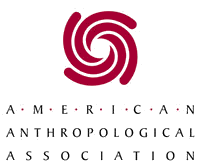
Anthropology is the scientific study of humanity, concerned with human behavior, human biology, cultures, societies, and linguistics, in both the present and past, including past human species. Social anthropology studies patterns of behavior, while cultural anthropology studies cultural meaning, including norms and values. A portmanteau term sociocultural anthropology is commonly used today. Linguistic anthropology studies how language influences social life. Biological or physical anthropology studies the biological development of humans.
Ethnology is an academic field & discipline that compares and analyzes the characteristics of different peoples and the relationships between them.

In sociology, anthropology, archaeology, history, philosophy, and linguistics, structuralism is a general theory of culture and methodology that implies that elements of human culture must be understood by way of their relationship to a broader system. It works to uncover the structures that underlie all the things that humans do, think, perceive, and feel.

Anthropology of religion is the study of religion in relation to other social institutions, and the comparison of religious beliefs and practices across cultures.

The American Anthropological Association (AAA) is an organization of scholars and practitioners in the field of anthropology. With 10,000 members, the association, based in Arlington, Virginia, includes archaeologists, cultural anthropologists, biological anthropologists, linguistic anthropologists, linguists, medical anthropologists and applied anthropologists in universities and colleges, research institutions, government agencies, museums, corporations and non-profits throughout the world. The AAA publishes more than 20 peer-reviewed scholarly journals, available in print and online through AnthroSource. The AAA was founded in 1902.
The Caucasian race is an obsolete racial classification of humans based on a now-disproven theory of biological race. The Caucasian race was historically regarded as a biological taxon which, depending on which of the historical race classifications was being used, usually included ancient and modern populations from all or parts of Europe, Western Asia, Central Asia, South Asia, North Africa, and the Horn of Africa.

Clifford James Geertz was an American anthropologist who is remembered mostly for his strong support for and influence on the practice of symbolic anthropology and who was considered "for three decades... the single most influential cultural anthropologist in the United States." He served until his death as professor emeritus at the Institute for Advanced Study, Princeton.
Marvin Harris was an American anthropologist. He was born in Brooklyn, New York City. A prolific writer, he was highly influential in the development of cultural materialism and environmental determinism. In his work, he combined Karl Marx's emphasis on the forces of production with Thomas Malthus's insights on the impact of demographic factors on other parts of the sociocultural system.

David Rolfe Graeber was an American anthropologist and anarchist activist. His influential work in economic anthropology, particularly his books Debt: The First 5,000 Years (2011), Bullshit Jobs (2018), and The Dawn of Everything (2021), and his leading role in the Occupy movement, earned him recognition as one of the foremost anthropologists and left-wing thinkers of his time.
History of anthropology in this article refers primarily to the 18th- and 19th-century precursors of modern anthropology. The term anthropology itself, innovated as a New Latin scientific word during the Renaissance, has always meant "the study of man". The topics to be included and the terminology have varied historically. At present they are more elaborate than they were during the development of anthropology. For a presentation of modern social and cultural anthropology as they have developed in Britain, France, and North America since approximately 1900, see the relevant sections under Anthropology.
Ecological anthropology is a sub-field of anthropology and is defined as the "study of cultural adaptations to environments". The sub-field is also defined as, "the study of relationships between a population of humans and their biophysical environment". The focus of its research concerns "how cultural beliefs and practices helped human populations adapt to their environments, and how people used elements of their culture to maintain their ecosystems". Ecological anthropology developed from the approach of cultural ecology, and it provided a conceptual framework more suitable for scientific inquiry than the cultural ecology approach. Research pursued under this approach aims to study a wide range of human responses to environmental problems.

The Royal Anthropological Institute of Great Britain and Ireland (RAI) is a long-established anthropological organisation, and Learned Society, with a global membership. Its remit includes all the component fields of anthropology, such as biological anthropology, evolutionary anthropology, social anthropology, cultural anthropology, visual anthropology and medical anthropology, as well as sub-specialisms within these, and interests shared with neighbouring disciplines such as human genetics, archaeology and linguistics. It seeks to combine a tradition of scholarship with services to anthropologists, including students.

Joseph Auguste Anténor Firmin, better known as Anténor Firmin, was a Haitian barrister and philosopher, pioneering anthropologist, journalist, and politician. Firmin is best known for his book De l'égalité des races humaines, which was published in 1885 as a rebuttal to French writer Count Arthur de Gobineau's work Essai sur l'inégalité des races humaines. Gobineau's book asserted the superiority of the Aryan race and the inferiority of Blacks and other people of color. Firmin's book argued the opposite, that "all men are endowed with the same qualities and the same faults, without distinction of color or anatomical form. The races are equal". He was marginalized at the time for his beliefs that all human races were equal.
American Anthropologist is the flagship journal of the American Anthropological Association (AAA), published quarterly by Wiley. The "New Series" began in 1899 under an editorial board that included Franz Boas, Daniel G. Brinton, and John Wesley Powell. The current editor-in-chief is Elizabeth Chin.
The University of Utah Press is the independent publishing branch of the University of Utah and is a division of the J. Willard Marriott Library. Founded in 1949 by A. Ray Olpin, it is also the oldest university press in Utah. The mission of the press is to "publish and disseminate scholarly books in selected fields, as well as other printed and recorded materials of significance to Utah, the region, the country, and the world."
William Curtis Sturtevant was an anthropologist and ethnologist. He is best known as the general editor of the 20-volume Handbook of North American Indians. Renowned anthropologist Claude Lévi-Strauss described the work as "an absolutely indispensable tool that should be found on the shelves of all libraries, public and private alike."
The University of Wisconsin Press is a non-profit university press publishing peer-reviewed books and journals. It publishes work by scholars from the global academic community; works of fiction, memoir and poetry under its imprint, Terrace Books; and serves the citizens of Wisconsin by publishing important books about Wisconsin, the Upper Midwest, and the Great Lakes region.
Cognitive anthropology is an approach within cultural anthropology and biological anthropology in which scholars seek to explain patterns of shared knowledge, cultural innovation, and transmission over time and space using the methods and theories of the cognitive sciences often through close collaboration with historians, ethnographers, archaeologists, linguists, musicologists, and other specialists engaged in the description and interpretation of cultural forms. Cognitive anthropology is concerned with what people from different groups know and how that implicit knowledge, in the sense of what they think subconsciously, changes the way people perceive and relate to the world around them.
Berghahn Books is a New York and Oxford-based publisher of scholarly books and academic journals in the humanities and social sciences, with a special focus on social & cultural anthropology, European history, politics, and film & media studies. It was founded in 1994 by Marion Berghahn.







